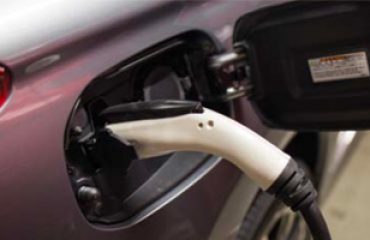LONG BEACH, Calif. — The beginning of the end is here for the internal-combustion truck engine, said Roger Nielsen, CEO of Daimler Trucks North America, the largest truck manufacturer on the continent.
And the replacement for diesel-run trucks will be electric vehicles, Nielsen declared. Not trucks run by natural gas or hydrogen fuel cells or a hybrid of diesel and electric, he said.
“I believe the future is electric,” Nielsen said. “The road to emissions-free driving will be driven by battery-electric vehicles.”
Nielsen said Daimler is aggressively planning for a future of totally electric trucks and buses.

“For trucks, I do not believe in plug-in hybrids,” he said. “For trucks, I believe that natural gas-powered engines are only an interim solution. For trucks, fuel cells as a range extender on battery-electric vehicles have promise, but hydrogen fuel cells alone are not yet viable.”
Nielsen made his proclamations at the annual Advanced Clean Transportation Expo, held this year at the Long Beach Convention Center, on April 24. The expo is a gathering of officials who promote the latest in green tech, sustainable methods and environmental policies that affect the carrier and bus industries.
It was all the more radical a declaration given that Daimler Trucks supplies 52% of the trucks operated by the top 100 fleets in North America, a statistic Nielsen relayed to an audience of more than 500 during the event’s keynote speech.
Nielsen said his conclusion about the trucking industry’s more eco-friendly future was all the more odd given Daimler Trucks is an older company, founded in 1896. Daimler Truck brands are stamped on 750,000 trucks on the continent.
“We’re the old guy who is often accused of yelling epithets at the young startups who dare to cross our lawn,” Nielsen said. “I have been building trucks since I was 25 years old.”
But Nielsen said he is deluged by questions from customers who want to know more about electric trucks, powered by batteries or hydrogen fuel cells. Nielsen said his vision does not exclude hydrogen fuel cells, but the cells will not be economically viable soon.
Nielsen’s remarks come two days after Kenworth and Toyota unveiled 10 trucks powered by hydrogen fuel cells April 22. The trucks will service the ports of Los Angeles and Long Beach, going on short runs and helping to reduce emissions in a region where smog and pollution dissipate more slowly.
The Kenworth-Toyota partnership came with some subsidy — a $41 million Zero and Near-Zero Emissions Freight Facilities grant awarded by the California Air Resources Board.
Nielsen said such subsidies will be needed to help make the transition to electric trucks. One of the reasons is the bulky nature of batteries for all-electric trucks.
“Unfortunately, there is no business case today for a sane and sober customer to buy a battery-electric truck,” he said. “Yes … it’s stripped of its accouterments of a diesel engine … But the battery packs that we add in? Boy, are they expensive. They’re heavy, and they’re large.” READ MORE
Article by Jim Stinson, Staff Reporter, Transport Topics




